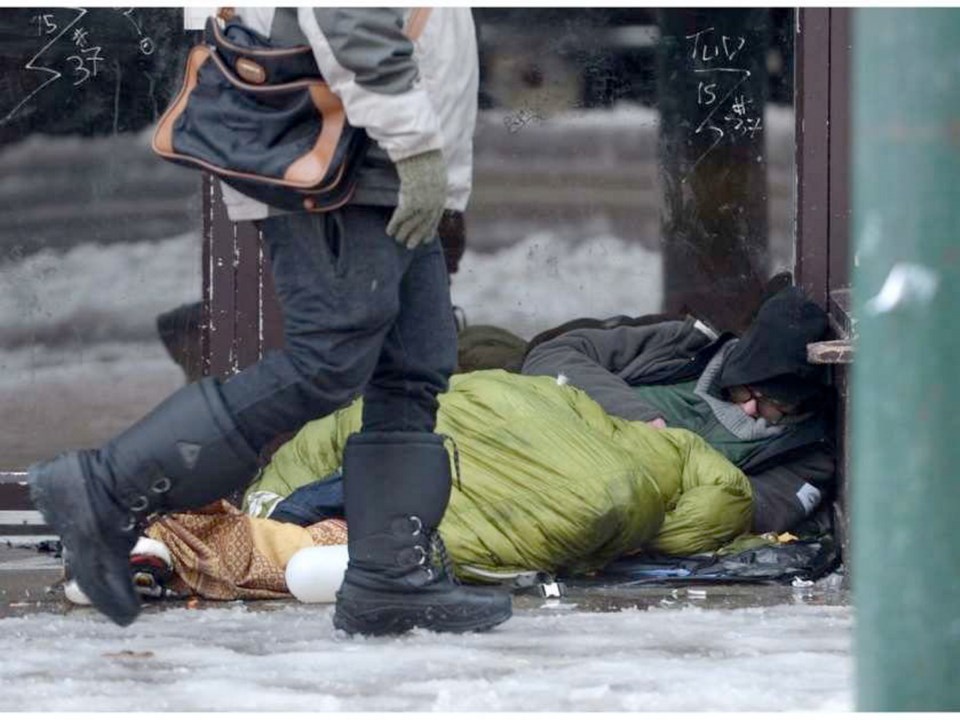Homelessness in Vancouver’s Downtown Eastside is reaching crisis levels with few solutions in sight, according to the Carnegie Community Action Project’s (CCAP) hotel and housing report released Monday.
“One of our findings was the average rent in the privately run hotels is $548 a month,” said Jean Swanson, a researcher involved in the eighth annual report. “And that $548 means that if you’re on welfare of $610 (for a single person), you only have $62 extra a month, or about $2 a day. The welfare rates have to go up massively.”
According to the report, the number of affordable new housing units in 2016 for low income people in the Downtown Eastside was just 16. As well, the report concluded, the ratio of homeless to housed people in the Downtown Eastside was one to 18.
“There were only 11 units of welfare rate social housing that opened in the Downtown Eastside last year,” added Swanson. “That’s with a homeless population of 1,000. So the other conclusion is we need a massive amount of new social housing.
“Homelessness now is worse than it’s ever been. Forty years ago, we hardly had any homeless in Vancouver.”
The report, designed to determine whether low-income people can afford to stay in the community, found that the amount of money the federal and provincial governments plan to spend on new social housing “will guarantee that homelessness continues to increase.”
The report revealed that 85 per cent of hotel rooms now rent for more than $425 a month and that average rents in the nine fastest gentrifying hotels were $1,101 — an increase of $196 over last year’s fastest gentrifying hotels.
“The rate of change for the immediate future in Chinatown is a whopping and inexcusable 362 unaffordable units to an actual loss of four SRO units,” the report concluded. “The rate of change in Chinatown for 2016 is 36:1, with 398 unaffordable units opening up and only 11 at welfare/pension rate.”
The report recommended that all levels of government take immediate action, including immediately enacting a national housing program.
The report also called for restoring the Residential Rehabilitation Assistance Program (RRAP) where hotels can get federal money for renovation and repair if they agree to strict rent control, raising welfare to $1,500 a month and disability to $1,800 a month.
The report also suggested designating enough land for 5,000 units of social housing in the Downtown Eastside to show senior levels of government that the city of Vancouver is serious about solving the housing crisis, and restoring minimum unit sizes to 400 square feet, so people have a home that feels permanent.



